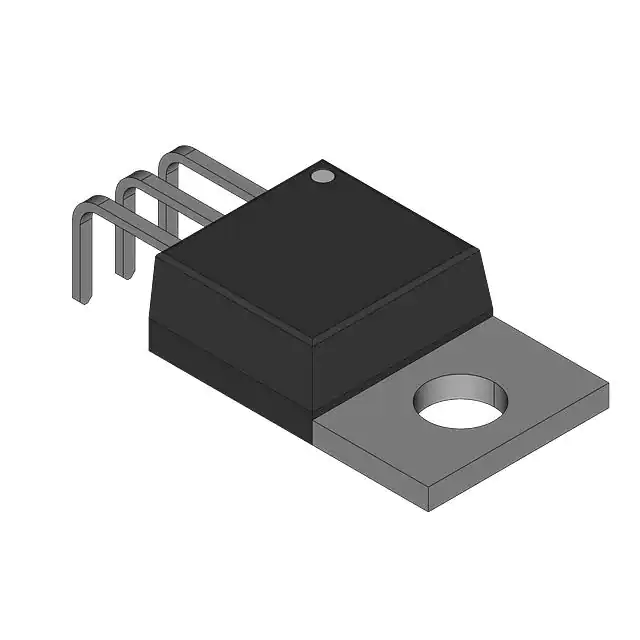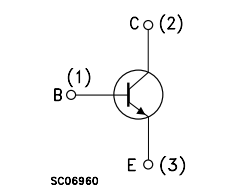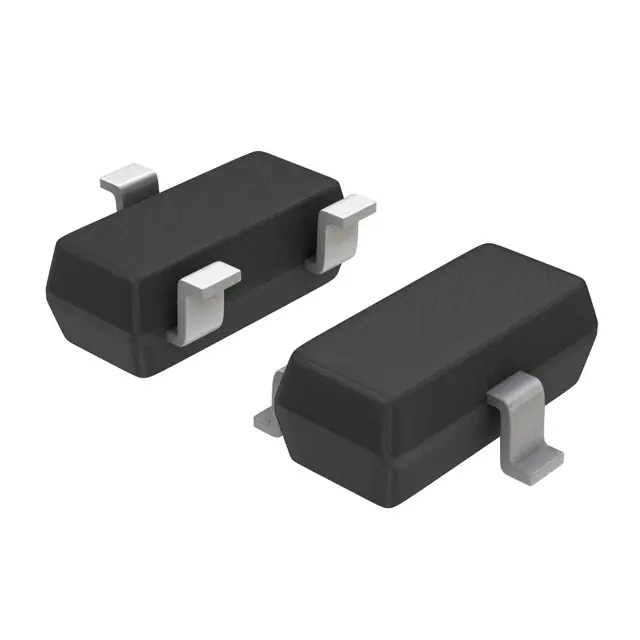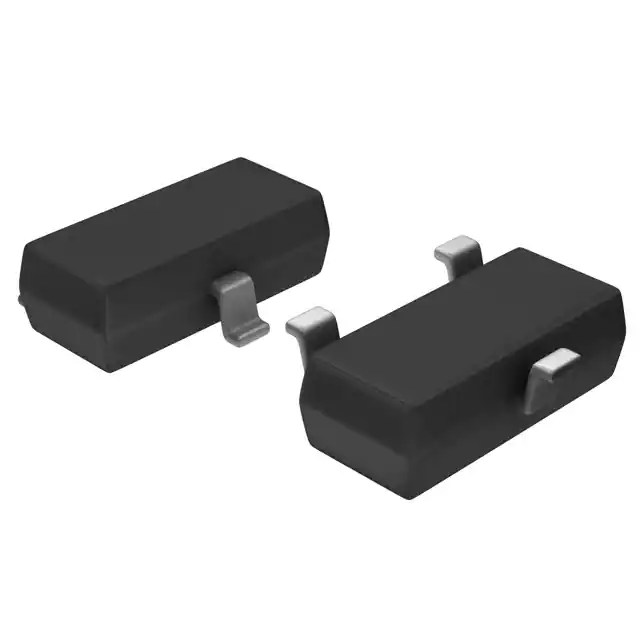Understanding the TIP31C Transistor: Features, Circuits, and DIY Applications

- Part No.:
- TIP31C
- Manufacturer:
- STMicroelectronics
- Package:
- TO-220-3
- Description:
- TRANS NPN 100V 3A TO-220
- Quantity:
- Payment:

- Shipping:

Article Details
- Details
- Specifications
- Comparison
The TIP31C is a widely used NPN power transistor in medium power level. From amp systems to LED drivers, it's a part of many analog circuits! Its datasheet description makes it very interesting and versatile chip, suitable either for professionals or hobbists.
It is part of a series of TIP31 devices, which includes TIP31A, TIP31B, and TIP31C with various voltage ratings. The TIP31C is the one who has the largest collector-emitter voltage among them–up to 100V, so it has some value for those circuits that operates under a higher voltage.
 1.Base
1.Base
2.Collector
3.Emitter
Back tab = Collector
It is essential to know the right pin array before designing a circuit or replacing a defective part.
Power Switching
Relay Drivers
Light Dimmer Circuits
Motor Drivers
Sound Reactive LED Projects
PTT Circuits
If you're looking for applications, play around and combine words (such TIP31C amplifier circuit, TIP31C application, etc.).
One the most innovative use of TIP31C is in sound activated LED circuit. These are things that let you make turning LEDs into flashing LEDs, which blink in time with music/sound.
Versatility is what ensures its existence within the electronics world. For beginners who are just getting started with DIY electronics, or even if you just need a good old transistor for your circuit, TIP31C is definitely a good arsenal for your workshop.
Now, let's discuss the TIP31C transistor in detail - from its features and pinout, to how it can be used in sound reactive LEDs, amplifier circuits and how it compares with other similar transistors.
What is TIP31C?
TIP31C is a NPN silicon power transistor used for switching applications. It's meant to be able to accommodate moderate power loads and is renowned for its durability and price.It is part of a series of TIP31 devices, which includes TIP31A, TIP31B, and TIP31C with various voltage ratings. The TIP31C is the one who has the largest collector-emitter voltage among them–up to 100V, so it has some value for those circuits that operates under a higher voltage.
TIP31C Datasheet Summary
From the TIP31C datasheet, the main electrical characteristics read:- Collector-Emitter Voltage (Vce):100V
- Collector Current (Ic):3A
- Power Dissipation (Pd):40W
- DC Current Gain (hFE):10 to 50
- Package Type:TO-220
- Transition Frequency:3 MHz
Pin Configuration & TIP31C Pinout
Standard TO-220 arrangement The pinout TIP31C packages come with a standard TO-220 layout.
2.Collector
3.Emitter
Back tab = Collector
It is essential to know the right pin array before designing a circuit or replacing a defective part.
Key Features
- NPN Typ
- High power handling (up to 40W)
- Low cost and easily available
- Its TO-220 package allows for simple heat sinking
- High voltage tolerance (100V)
- Supported by many vendors, (Fairchild, ST, ON Semi)
Common TIP31C Applications
Audio Amplifier CircuitsPower Switching
Relay Drivers
Light Dimmer Circuits
Motor Drivers
Sound Reactive LED Projects
PTT Circuits
If you're looking for applications, play around and combine words (such TIP31C amplifier circuit, TIP31C application, etc.).
How to Make Sound Reactive LEDs with TIP31C
TIP31C Sound to Light Circuit led making as per sound Music Aasim. Music to light circuit using TIP31C simple, this is a good experience circuit, you can adjust the sensitivity of the sound and can see the light dance music, as for sound input can be taken by a microphone or iT can be microphone or be input through this circuit.One the most innovative use of TIP31C is in sound activated LED circuit. These are things that let you make turning LEDs into flashing LEDs, which blink in time with music/sound.
Basic Components You'll Need:
- TIP31C transistor
- 3.5mm audio jack or microphone
- Resistors (1kΩ and 10kΩ)
- Power supply (5–12V)
- LEDs
- Capacitors (optional for smoothing signal)
Wiring Steps:
- Connect the TIP31C base to the audio input via a resistor.
- Connect the emitter to ground.
- Connect the LEDs in series to the collector, and from there to the positive supply.
- Now power your circuit up and see your LEDs flashing to the music!
Circuit Examples with TIP31C
- TIP31C Amplifier Circuit – Can function as a simple audio amplifier when used with a few capacitors and bias resistors.
- TIP31C PTT Circuit – Push to talk circuits are widely used in radio transmitters PTT switch and the circuit is used for transmitting the voice signals With the....
- LED Strip Driver – Perfect for switching 12V LED strips in your own light shows.
TIP31C vs Other Transistors
TIP31A vs TIP31C- The two are of the same family.
- The collector-emitter voltage is less for the TIP31A than TIP31C (40V vs 100).
- TIP31C is generally more robust.
- TIP32C is an PNP version of TIP31C.
- Reverse polarity – use in push pull complementary.
- The TIP41C has both greater current rating (6A vs 3A) and higher hfe.
- TIP41C is better for heavy loads, but TIP31C may be more controllable.
Conclusion: Why Choose TIP31C?
The TIP31C NPN power transistor, offers a good balance of power, ease of use, and availability. When you are building or putting songs to a music synchronized light project like the discos, small amplifier and all of that, the TIP31C will do the job for you.Versatility is what ensures its existence within the electronics world. For beginners who are just getting started with DIY electronics, or even if you just need a good old transistor for your circuit, TIP31C is definitely a good arsenal for your workshop.
- Product attributes
- Attribute value
- Manufacturer:
- STMicroelectronics
- Series:
- -
- Package/Case:
- TO-220-3
- Packaging:
- Tube
- Part Status:
- Active
- Resistance:
- NPN
- Tolerance:
- 3 A
- Composition:
- 1.2V @ 375mA, 3A
- Features:
- 300µA
- Temperature Coefficient:
- 10 @ 3A, 4V
- Operating Temperature:
- 2 W
- Supplier Device Package:
- -
- Power (Watts):
- 100 V
- Ratings:
- 150°C (TJ)
- Size / Dimension:
- -
- Height - Seated (Max):
- -
- Number of Terminations:
- Through Hole
- Failure Rate:
- TO-220
| Image |  |
| Part Number | TIP31C |
| Manufacturer | STMicroelectronics |
| Series | - |
| Package/Case | TO-220-3 |
| Packaging | Tube |
| Part Status | Active |
| Transistor Type | NPN |
| Current - Collector (Ic) (Max) | 3 A |
| Vce Saturation (Max) @ Ib, Ic | 1.2V @ 375mA, 3A |
| Current - Collector Cutoff (Max) | 300µA |
| DC Current Gain (hFE) (Min) @ Ic, Vce | 10 @ 3A, 4V |
| Power - Max | 2 W |
| Frequency - Transition | - |
| Voltage - Collector Emitter Breakdown (Max) | 100 V |
| Operating Temperature | 150°C (TJ) |
| Grade | - |
| Qualification | - |
| Mounting Style | Through Hole |
| Supplier Device Package | TO-220 |
inventory:1,356
Please send an inquiry. Send us your inquiry, and we will respond immediately.

-
MMBT3906LT1G
onsemi

-
MMBT3904-7-F
Diodes Incorporated

-
MMBT3904LT1G
onsemi

-
MMBT3906-7-F
Diodes Incorporated

-
MMBT3904-TP
Micro Commercial Co

-
MMBT2222A-7-F
Diodes Incorporated





